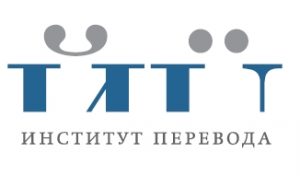 The Russian Institute for Literary Translation is a non-profit organization that is at the heart of promoting and funding Russian writing abroad and in translation; it has funded or part-funded hundreds of books since its foundation in 2011. Its board includes some of the most senior and respected cultural figures and academics in today’s Russia. Two of the highlights of its cultural programme are the biannual Congress of Literary Translators, held in Moscow, and the biannual Read Russia Prize, also awarded for literary translation. RusTrans spoke to Evgeny Reznichenko, Executive Director of the Institute since 2011, about how the current crisis is affecting its activities and immediate future.
The Russian Institute for Literary Translation is a non-profit organization that is at the heart of promoting and funding Russian writing abroad and in translation; it has funded or part-funded hundreds of books since its foundation in 2011. Its board includes some of the most senior and respected cultural figures and academics in today’s Russia. Two of the highlights of its cultural programme are the biannual Congress of Literary Translators, held in Moscow, and the biannual Read Russia Prize, also awarded for literary translation. RusTrans spoke to Evgeny Reznichenko, Executive Director of the Institute since 2011, about how the current crisis is affecting its activities and immediate future.
Quarantine, and fear for ourselves and our loved ones, have radically re-shaped how we think and behave. How have you adapted to your new working conditions? How has the crisis affected your future plans and/or your creative process?

Evgeny Reznichenko
Calamitas virtutis occasio est. Ever since Aristotle’s pupil Theophrastus wrote On Moral Characters [essays on different personality types – RusTrans], we have known that we must live with fear, while continuing to resist it. We have common sense, rules, strict protocols. In a line that might have been written today, Victor Tsoi sang in 1986, “Look after yourself, be careful, look after yourself.” If this view seems rather gloomy, who ever promised us an easy life? Be careful and act correctly: as Marcus Aurelius said, “Do what needs to be done, and let what will happen, happen.” This is a time for putting our thoughts, and our affairs, in order.
As far as work is concerned, it’s still going on, and there is certainly no less to do. Of course, I have had to reconsider immediate plans: turn down some commitments, postpone others, and where timetables are less strict, keep my finger on the pulse (so to speak), in order to start again as soon as restrictions are lifted. Thus, for example, although international gatherings have been cancelled or postponed, I still haven’t lost hope of hosting in Moscow this year our traditional International Congress of Translators, already the sixth successive event. We’ll make a decision about whether to go ahead (possibly later in the autumn than usual) after this weekend’s Book Festival in Red Square [which is going ahead somewhat controversially with some publishers staying away, but readings planned from Zakhar Prilepin, Andrei Gelasimov and others – RusTrans] What’s more, the global Читай Россию/Read Russia prize will soon celebrate this year’s winners at its awards ceremony.
At the moment, we’re working on: redesigning the Institute for Literary Translation’s website, which we hope to launch this month; steadily filling in of the gaps in our database of translations of Russian literature (between the years 2012-2019) — we welcome any information about publications we may have missed out; preparing to publish an anthology of essays from the Fifth International Congress of Translators of Literary Fiction, in two volumes (see previous anthology here); revising our major online project “Across The Barriers”, dedicated to Russian literature and including no fewer than ten online conferences, seminars, round tables, lectures, and presentations — this last project is supported by our partners in Austria, Great Britain, Germany, Greece, India, Spain, Italy, China, the USA, France, Switzerland, South Korea, the Scandinavian countries and the countries of Eastern Europe. And, naturally, work will continue in the new financial year on our project to complete a 100-volume “Russian Library” in English translation, in association with Columbia University Press; and on constructing the website for an online “Russian Library in French in 100 volumes”. Together with our Chinese partners we are planning the first award ceremony for a prize established last year (“Russia-China: The Literature of Diplomacy”) for the best translation of a work of Russian literature into Chinese; we have had to shift this event from May to the second half of the year.
Perhaps quarantine’s worst effect, for me, is personal: – I miss seeing my colleagues daily (although it’s possible they don’t appreciate this quite as much!). My personal creative plans will survive: the epidemic won’t touch them. [Evgeny is a poet whose most recent collection, Poems and Songs For All Occasions, was published in 2014 – RusTrans]
What do you think will be the knock-on effect from lockdown on translation publishing? Are there advantages as well as disadvantages for people in the creative industry?
Literally, at the time of writing, we are contacting publishers who applied to us for grants to translate and publish classical and contemporary Russian literature, about the decisions made by our panel of experts. In 2020 we will distribute 140 grants to more than 120 overseas publishers in 44 countries.We have just this week signed contracts with 59 foreign publishing houses — providing a boost that is hopefully not just financial, but emotional. As far as I know, all the publishers who applied still intend to complete all the originally planned translations of Russian books, subject to revised release dates. Of course the entire book publishing world is ‘catching its breath’, and very likely, not all these books will make it to the finish line… But it’s not as if writers have started writing less, or translators have stopped translating. Nor are delays confined to the appearance of translations from Russian: there are equal problems with translations from English, German, French, and Chinese – from all languages! As we Russians say, timing is everything; a word spoken or heard at the right time can radically change the prospects for an individual and society. But, alas, such change is not always for the best – that depends on the individual and the society.
What has been the impact on your work/industry of cancelled book fairs, book launches, speaker events and so on? Is there a danger that the English-speaking world will forget Russian culture?
Well, of course there isn’t enough person-to-person communication –- we’re missing out on basic human warmth, the energy of emotional exchanges, even on the terrors of mutual misunderstandings and acts of internal protest.
We’re also lacking what you might call impulses –- for new ideas, new projects, the completion or continuation of long-standing arguments, flashbacks to the past, new names, new people. “Official work” is non-stop but, alas, it doesn’t move us on very much. We are benefiting from the opportunity to perfect incomplete work, spend time analysing our victories and defeats, to separate the wheat from the chaff yet again – and to sketch what the ideal working world might look like, post-quarantine. We have free time to imagine, read, and think; and already there’s not so much of it left. But, thank God, some still remains.
As for forgetting Russian culture, I think culture is such an important part of our planetary existence that it would be difficult to overlook. But anything can happen. If the English-speaking world were to forget about us, I hope they would remember Dostoevsky within a year!
One of my favourite films is Richard Curtis’ romantic comedy Love Actually (2003). In one of its best scenes, Hugh Grant, in the role of British Prime Minister, describes Great Britain as if formulating an actual code for culture, or listing the genes in its cultural DNA: “The country of Shakespeare, Churchill, the Beatles, Sean Connery, Harry Potter, Beckham’s right foot… and Beckham’s left foot.” I could easily continue Grant’s list both forwards and backwards in time: from King Arthur and Chaucer to Harold Pinter and Elizabeth the Second. For these names are part of my cultural code, my cultural DNA, also. So can we really believe that great Russian names like Andrei Rublev, Peter I, Mikhail Lomonosov, Petr Tchaikovskii, Leo Tolstoy, Vladimir Mayakovskii, Vasily Kandinskii, Mikhail Sholokhov, Galina Ulanova, Yurii Gagarin, Svyatoslav Richter, Andrei Tarkovsky, Valery Kharlamov, Joseph Brodsky – and many many others – can remain meaningless sounds for British, American, Canadian or Australian readers? Perhaps I’m too 
 optimistic, but this seems impossible to me.
optimistic, but this seems impossible to me.
And I would add Lev Yashin to Beckham’s team – together, they’d be invincible.
If you write or produce books, are you aware of increased sales thanks to locked-down populations turning to books for relief? Could this be a golden moment for reading?
I think that yes, now is a golden moment for reading. At least, for readers, of course! My publisher friends are continuing throughout this time to make books available in online shops, which proves that there is demand, and book suppliers are still doing business. I myself have finally managed to get to my personal library, where Virgil, and Dante, and Montaigne, and Konstantin Vaginov, and Boris Pilniak, and Evgenii Vodolazkin, and Maya Kucherskaia and many many others have long awaited reading and re-reading: how many times have I looked regretfully at my shelves and wondered aloud when I would actually be able to spend time with a book? Finally, that day has come!
I don’t have the statistics, but I believe that sales of electronic books have risen substantially. Moreover, several significant eBook producers have made their resources freely available during quarantine. Gestures like this speak to the fact that we have not yet forgotten how to help each other in difficult times, that we still feel a keen need to give mutual support.
As for sales of print books in high street bookshops: unfortunately, this is a catastrophe. Especially for small and medium-sized businesses – which happen to make up a majority in the sector, and not only in Russia. All over the world my colleagues are lamenting a worsening crisis in this field. Of course, soon things will improve — but not, alas, for everyone.
And finally, which book(s) do you think stand a good chance of winning prizes for translated fiction – such as the Read Russia Prize (2020)?
I can’t pretend to be an expert on the outcomes of literary prizes. Here I fully trust the British and American colleagues, organizers, and jury members of the Read Russia Prize, which is hosted by Peter Kaufman. Something that Anglophone readers do lack today are translations of Russian children’s literature. In Russia, there are many translations of children’s literature from English, French, and the Scandinavian languages, for example. And I assure you – contemporary Russian literature for children, adolescents, and young adults in Russia is excellent. Seize the day!
Thank you for speaking with us, Evgeny, and sharing so much food for thought. We look forward to visiting the revamped Institute for Translation website in the near future. Next week, we publish our interview with Peter Kaufman, president and executive director of Read Russia.